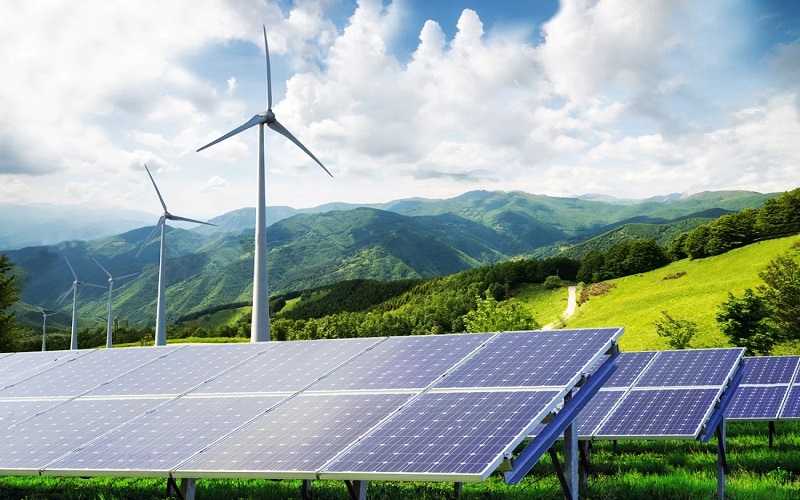For decades, Nigeria’s power sector has been on shaky ground — struggling with unreliable electricity supply, aging infrastructure, and an overdependence on fossil fuels. Grid collapse has become a recurrent experience, forcing households and businesses to rely on expensive and polluting generators.
Amid these challenges, past and present governments always paint a hopeful picture of reforms and investments aimed at improving the grid. Yet, in a world rapidly shifting towards renewable energy, true progress will not come from patching up a failing system but from embracing a sustainable, green energy future. Indigenous brands like iPower are already leading the way, proving that Nigeria does not have to be left behind.
The global energy landscape is undergoing a transformation. In fact, with the Paris Agreement, more than 110 countries have committed to a net zero emissions target by 2050. Renewable energy has become the new frontier as nations race to reduce carbon emissions and combat climate change.
Solar farms are stretching across the Sahara, wind turbines are rising along coastlines, and battery technology is advancing at an unprecedented pace. Countries like China, Japan, and the US, which once relied on coal and crude oil, are now investing heavily in clean energy solutions — not just for environmental reasons but because renewables are proving to be more economically viable in the long run.
Africa, with its vast untapped solar and wind resources, is uniquely positioned to capitalize on this shift. Countries like Kenya, Egypt, and Morocco are already harnessing these resources to power industries, businesses, and homes by investing substantially in solar, wind, and hydroelectric power. Kenya, for instance, generates nearly half of its energy supply from geothermal energy. The question is: Will Nigeria seize this opportunity or remain trapped in outdated energy policies?
One of renewable energy’s biggest advantages is that it provides off-grid solutions — a crucial benefit for remote villages where electricity grids are non-existent. Solar panels, wind turbines, and hydro mini-grids are offering lifelines to communities that have long been neglected by traditional energy providers.
Beyond environmental benefits, renewable energy presents a strong economic case. Traditional power sources come with high fuel costs, maintenance expenses, and environmental levies. In contrast, solar and wind energy offer long-term savings, reduced reliance on imports, and the potential to create thousands of jobs in manufacturing, installation, and maintenance.
A stable power supply means extended operating hours and increased productivity for small businesses, uninterrupted medical care for hospitals, and access to digital learning tools even after sundown for students. Energy access is not just about convenience — it’s about economic empowerment.
Nigeria cannot afford to sit on the sidelines. Forward-thinking companies like iPower, which has a vision to power Africa sustainably, are proving that clean energy solutions can be accessible, affordable, and effective. Unlike generic imports, iPower’s renewable energy products are specifically designed to meet Nigeria’s unique energy needs — factoring in extreme weather conditions, infrastructural gaps, and affordability.
iPower’s product lineup includes solar home systems that provide uninterrupted power for households, portable energy solutions for businesses and remote areas, and advanced battery storage technologies to ensure consistent electricity supply even during peak usage hours.
Beyond just providing products, iPower is shaping the future of renewable energy in Africa by investing in education and awareness campaigns, ensuring that more people understand the benefits of switching to clean energy. By integrating innovative financing models and local partnerships, iPower is making it easier for Nigerians to transition to clean, reliable energy solutions without the burden of high upfront costs.
For Nigeria to become a key player in the global renewable energy sector, both private enterprises and government action must align. Companies like iPower are already making strides, but government support is essential to scale these efforts.
The government can play a critical role by providing incentives such as tax breaks and subsidies for renewable energy projects, investing in infrastructure to support large-scale solar and wind energy farms, partnering with private companies to expand access to affordable clean energy solutions, educating the public on the benefits of renewable energy adoption.
The world is moving towards a clean energy future, and Nigeria has a choice: act now and lead the transition in Africa or risk being left behind. With iPower at the helm, the vision of a sustainable, self-sufficient Nigeria is no longer a distant dream — it is an achievable reality.
The future is not in generators that guzzle fuel or diesel and pollute the air. The future is in the power of the sun, the strength of the wind, and the innovation of homegrown companies like iPower. The time to act is now.

